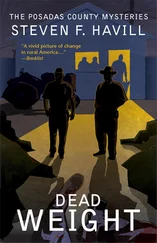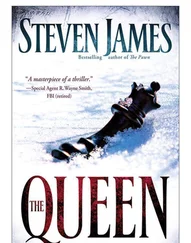Steven Levitt - Freakonomics
Здесь есть возможность читать онлайн «Steven Levitt - Freakonomics» весь текст электронной книги совершенно бесплатно (целиком полную версию без сокращений). В некоторых случаях можно слушать аудио, скачать через торрент в формате fb2 и присутствует краткое содержание. Год выпуска: 2005, ISBN: 2005, Издательство: HarperCollins Publishers Ltd., Жанр: Прочая научная литература, на английском языке. Описание произведения, (предисловие) а так же отзывы посетителей доступны на портале библиотеки ЛибКат.
- Название:Freakonomics
- Автор:
- Издательство:HarperCollins Publishers Ltd.
- Жанр:
- Год:2005
- ISBN:ISBN 0-06-083822-1
- Рейтинг книги:5 / 5. Голосов: 1
-
Избранное:Добавить в избранное
- Отзывы:
-
Ваша оценка:
- 100
- 1
- 2
- 3
- 4
- 5
Freakonomics: краткое содержание, описание и аннотация
Предлагаем к чтению аннотацию, описание, краткое содержание или предисловие (зависит от того, что написал сам автор книги «Freakonomics»). Если вы не нашли необходимую информацию о книге — напишите в комментариях, мы постараемся отыскать её.
Freakonomics — читать онлайн бесплатно полную книгу (весь текст) целиком
Ниже представлен текст книги, разбитый по страницам. Система сохранения места последней прочитанной страницы, позволяет с удобством читать онлайн бесплатно книгу «Freakonomics», без необходимости каждый раз заново искать на чём Вы остановились. Поставьте закладку, и сможете в любой момент перейти на страницу, на которой закончили чтение.
Интервал:
Закладка:
Let’s now consider the following statistic, which represents the hundreds of matches in which a 7–7 wrestler faced an 8–6 wrestler on a tournament’s final day. The left column tallies the probability, based on all past meetings between the two wrestlers fighting that day, that the 7–7 wrestler will win. The right column shows how often the 7–7 wrestler actually did win.
7-7 wrestler’s predicted win percentage against 8-6 opponent | 7-7 wrestler’s actual win percentage against 8-6 opponent
48.7 | 79.6
So the 7–7 wrestler, based on past outcomes, was expected to win just less than half the time. This makes sense; their records in this tournament indicate that the 8–6 wrestler is slightly better. But in actuality, the wrestler on the bubble won almost eight out of ten matches against his 8–6 opponent. Wrestlers on the bubble also do astonishingly well against 9–5 opponents:
7-7 wrestler’s predicted win percentage against 9-5 opponent | 7-7 wrestler’s actual win percentage against 9-5 opponent
47.2 | 73.4
As suspicious as this looks, a high winning percentage alone isn’t enough to prove that a match is rigged. Since so much depends on a wrestler’s eighth win, he should be expected to fight harder in a crucial bout. But perhaps there are further clues in the data that prove collusion.
It’s worth thinking about the incentive a wrestler might have to throw a match. Maybe he accepts a bribe (which would obviously not be recorded in the data). Or perhaps some other arrangement is made between the two wrestlers. Keep in mind that the pool of elite sumo wrestlers is extraordinarily tight-knit. Each of the sixty-six elite wrestlers fights fifteen of the others in a tournament every two months. Furthermore, each wrestler belongs to a stable that is typically managed by a former sumo champion, so even the rival stables have close ties. (Wrestlers from the same stable do not wrestle one another.)
Now let’s look at the win-loss percentage between the 7–7 wrestlers and the 8–6 wrestlers the next time they meet, when neither one is on the bubble. In this case, there is no great pressure on the individual match. So you might expect the wrestlers who won their 7–7 matches in the previous tournament to do about as well as they had in earlier matches against these same opponents—that is, winning roughly 50 percent of the time. You certainly wouldn’t expect them to uphold their 80 percent clip.
As it turns out, the data show that the 7–7 wrestlers win only 40 percent of the rematches. Eighty percent in one match and 40 percent in the next? How do you make sense of that?
The most logical explanation is that the wrestlers made a quid pro quo agreement: you let me win today, when I really need the victory, and I’ll let you win the next time. (Such an arrangement wouldn’t preclude a cash bribe.) It’s especially interesting to note that by the two wrestlers’ second subsequent meeting, the win percentages revert to the expected level of about 50 percent, suggesting that the collusion spans only two matches.
And it isn’t only the individual wrestlers whose records are suspect. The collective records of the various sumo stables are similarly aberrational. When one stable’s wrestlers fare well on the bubble against wrestlers from a second stable, they tend to do especially poorly when the second stable’s wrestlers are on the bubble. This indicates that some match rigging may be choreographed at the highest level of the sport—much like the Olympic skating judges’ vote swapping.
No formal disciplinary action has ever been taken against a Japanese sumo wrestler for match rigging. Officials from the Japanese Sumo Association typically dismiss any such charges as fabrications by disgruntled former wrestlers. In fact, the mere utterance of the words “sumo” and “rigged” in the same sentence can cause a national furor. People tend to get defensive when the integrity of their national sport is impugned.
Still, allegations of match rigging do occasionally find their way into the Japanese media. These occasional media storms offer one more chance to measure possible corruption in sumo. Media scrutiny, after all, creates a powerful incentive: if two sumo wrestlers or their stables have been rigging matches, they might be leery to continue when a swarm of journalists and TV cameras descend upon them.
So what happens in such cases? The data show that in the sumo tournaments held immediately after allegations of match rigging, 7–7 wrestlers win only 50 percent of their final-day matches against 8–6 opponents instead of the typical 80 percent. No matter how the data are sliced, they inevitably suggest one thing: it is hard to argue that sumo wrestling isn’t rigged.
Several years ago, two former sumo wrestlers came forward with extensive allegations of match rigging—and more. Aside from the crooked matches, they said, sumo was rife with drug use and sexcapades, bribes and tax evasion, and close ties to the yakuza, the Japanese mafia. The two men began to receive threatening phone calls; one of them told friends he was afraid he would be killed by the yakuza. Still, they went forward with plans to hold a press conference at the Foreign Correspondents’ Club in Tokyo. But shortly beforehand, the two men died—hours apart, in the same hospital, of a similar respiratory ailment. The police declared there had been no foul play but did not conduct an investigation. “It seems very strange for these two people to die on the same day at the same hospital,” said Mitsuru Miyake, the editor of a sumo magazine. “But no one has seen them poisoned, so you can’t prove the skepticism.”
Whether or not their deaths were intentional, these two men had done what no other sumo insider had previously done: named names. Of the 281 wrestlers covered in the data cited above, they identified 29 crooked wrestlers and 11 who were said to be incorruptible.
What happens when the whistle-blowers’ corroborating evidence is factored into the analysis of the match data? In matches between two supposedly corrupt wrestlers, the wrestler who was on the bubble won about 80 percent of the time. In bubble matches against a supposedly clean opponent, meanwhile, the bubble wrestler was no more likely to win than his record would predict. Furthermore, when a supposedly corrupt wrestler faced an opponent whom the whistle-blowers did not name as either corrupt or clean, the results were nearly as skewed as when two corrupt wrestlers met—suggesting that most wrestlers who weren’t specifically named were also corrupt.
So if sumo wrestlers, schoolteachers, and day-care parents all cheat, are we to assume that mankind is innately and universally corrupt? And if so, how corrupt?
The answer may lie in . . . bagels. Consider the true story of a man named Paul Feldman.
Once upon a time, Feldman dreamed big dreams. Trained as an agricultural economist, he wanted to tackle world hunger. Instead, he took a job in Washington, analyzing weapons expenditures for the U.S. Navy. This was in 1962. For the next twenty-odd years, he did more of the same. He held senior-level jobs and earned good money, but he wasn’t fully engaged in his work. At the office Christmas party, colleagues would introduce him to their wives not as “the head of the public research group” (which he was) but as “the guy who brings in the bagels.”
The bagels had begun as a casual gesture: a boss treating his employees whenever they won a research contract. Then he made it a habit. Every Friday, he would bring in some bagels, a serrated knife, and cream cheese. When employees from neighboring floors heard about the bagels, they wanted some too. Eventually he was bringing in fifteen dozen bagels a week. In order to recoup his costs, he set out a cash basket and a sign with the suggested price. His collection rate was about 95 percent; he attributed the underpayment to oversight, not fraud.
Читать дальшеИнтервал:
Закладка:
Похожие книги на «Freakonomics»
Представляем Вашему вниманию похожие книги на «Freakonomics» списком для выбора. Мы отобрали схожую по названию и смыслу литературу в надежде предоставить читателям больше вариантов отыскать новые, интересные, ещё непрочитанные произведения.
Обсуждение, отзывы о книге «Freakonomics» и просто собственные мнения читателей. Оставьте ваши комментарии, напишите, что Вы думаете о произведении, его смысле или главных героях. Укажите что конкретно понравилось, а что нет, и почему Вы так считаете.











